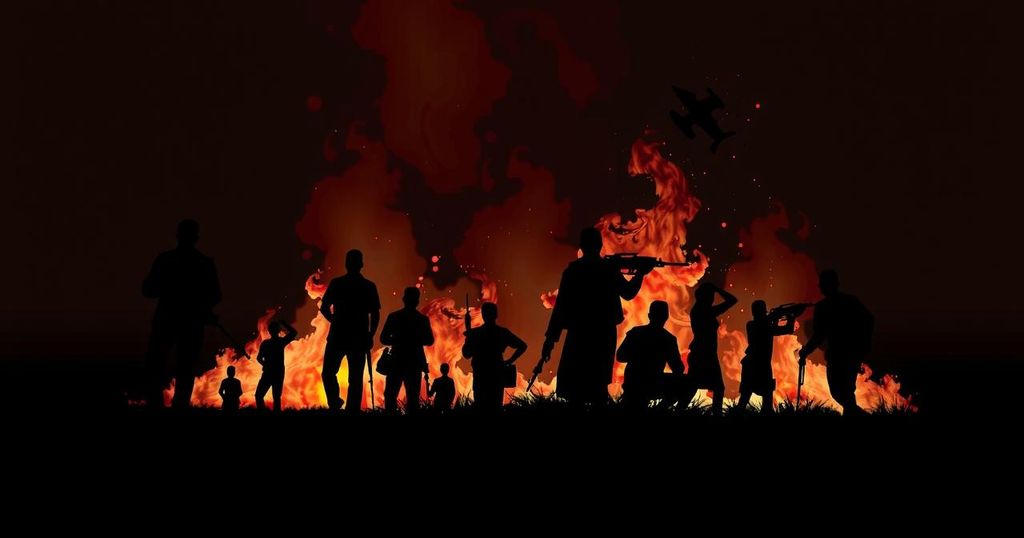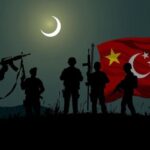Rights Group Accuses Sudanese Paramilitary of Widespread Sexual Violence Amid Ongoing Conflict
Summary
An international rights group has highlighted severe sexual violence trends in Sudan, primarily perpetrated by the RSF amidst ongoing conflict. Human Rights Watch calls for protective measures from UN and AU, urging accountability for these acts classified as war crimes.
An international rights organization has alleged that a paramilitary faction in conflict-ridden Sudan is perpetrating widespread sexual violence against women, including acts of rape, gang rape, and forced as well as child marriages. The report also attributes a limited number of such incidents to the national military. Human Rights Watch has urged the United Nations and the African Union to establish a joint mission aimed at safeguarding civilians as the ongoing violent conflict between the military and the paramilitary Rapid Support Forces (RSF) enters its 16th month without resolution.\n\nLaetitia Bader, Deputy Africa Director at Human Rights Watch, stated, “The Rapid Support Forces have raped, gang raped, and forced into marriage countless women and girls in residential areas in Sudan’s capital.” The organization accused both sides of obstructing survivors’ access to essential medical care. Furthermore, it highlighted that the military has deliberately restricted humanitarian aid shipments to regions controlled by the RSF, which has reportedly pillaged medical supplies and occupied health care facilities.\n\nSudan descended into disorder in April of the previous year when escalating strains between the military and RSF erupted into armed conflict in the capital, Khartoum, and surrounding areas, resulting in over 14,000 fatalities and 33,000 injuries, as reported by the United Nations. The humanitarian crisis has displaced more than 11 million people, marking it as the largest displacement crisis in the world. The RSF, which evolved from the Janjaweed militias active during the Darfur conflict, has been linked to various violations of human rights.\n\nHuman Rights Watch reported extensive instances of sexual violence and forced marriages during the ongoing conflict in Greater Khartoum, documenting cases attributed mainly to the RSF but also implicating the military. The organization emphasized that such acts constitute serious violations of international law, specifically war crimes and crimes against humanity. It is noteworthy that both RSF and military forces have not taken valid actions to prevent these atrocities, nor provided satisfactory responses regarding allegations of sexual abuse against their troops.\n\nHuman Rights Watch has called for effective measures from the African Union and the UN to implement a protective mission for civilians in Sudan, particularly focusing on preventing gender-based violence. Bader also emphasized the necessity for accountability, urging that, “The United Nations and African Union need to mobilize this protection and states should hold to account those responsible for ongoing sexual violence…”. Recent clashes reported in eastern Sudan and in the city of al-Fasher continue to exacerbate the situation, with predictions of severe famine affecting 755,000 individuals in the near future, in addition to 8.5 million facing extreme food shortages.
The civil war in Sudan, which erupted in April of last year, has led to catastrophic humanitarian consequences, including widespread violence against civilians, particularly women. The conflict primarily involves the armed forces and the RSF, a paramilitary group that has roots in the notorious Janjaweed militias linked to past atrocities in Darfur. Amid this turmoil, reports of sexual violence have surged, with rights organizations documenting serious breaches of international law. The deteriorating humanitarian situation has resulted in mass displacements, and the international community is urged to intervene to protect civilians and address the growing crisis.
In conclusion, the ongoing conflict in Sudan has led to alarming reports of sexual violence against women and girls, driven by both the RSF and the national military. Human Rights Watch’s findings underscore the urgent need for international intervention to protect civilians and ensure accountability for these crimes. The humanitarian crisis continues to deepen, necessitating concerted efforts from global bodies to address the pressing needs of the affected populations and to curb the violence perpetuated by warring factions.
Original Source: www.africanews.com








Post Comment